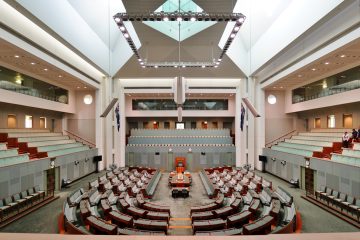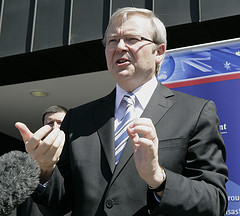
Australia’s Unprecedented Coalition Politics: Unpacking Scott Morrison’s Ministerial Self-Appointments
This summer it transpired that during the pandemic previous Prime Minister (PM) of Australia, Scott Morrison, had secretly appointed himself as minister to five ministries. By the end of his mandated term in 2022, he enjoyed the statutory powers to manage six of the 14 government ministries, often unbeknownst to the already appointed ministers and the public. What makes this an especially untoward governance strategy, is that the Morrison government was a coalition government. More precisely, Morrison’s party, the Liberal party, shared government office with the National party. Two of the five ministries Morrison appointed himself to, were originally assigned to the National party. He seemingly did so for the sole purpose of influencing their governance decisions. The report of …
The Crown’s Irresponsible Adviser, the Governor General, and the Australian Constitutional Crisis of 1975: A Smoking Gun?
On 14 July, following legal proceedings, the National Archives of Australia released correspondence between Sir John Kerr, who served as Governor General of Australia from 1974–77, and Sir Martin Charteris, the Principal Private Secretary (PPS) to the queen. The letters concern Kerr’s decision to dismiss Gough Whitlam, the Labor Prime Minister, who was then locked in a battle between the House of Representatives, where he held a majority, and the Senate, which opposed him and was blocking supply (the federal budget). Leading scholars, such as Anne Twomey, as well as Buckingham Palace, have argued that the letters contain no smoking gun connecting Kerr’s actions to the monarch or her PPS. However, we believe that we can see a wisp of smoke. And it lingered. Kerr and Charteris …

Kevenge! How Not To Choose a Political Party Leader
The revolving door at the top of the Australian Labor Party continues to spin, with ex-Foreign (and Prime) Minister, Kevin Rudd, challenging the current Prime Minister, Julia Gillard, for her job on Monday morning. Three things are notable about this challenge: its speed (Rudd formally announced his intention to stand on 24th February and the ballot will be held on the 27th); its ferocity (military metaphors like ‘mutually assured destruction’ scarcely seem overblown); and the fact that Rudd was ousted from the PM job only twenty months ago. Ms Gillard should win convincingly. Although 58% of Australians think that Rudd would make a better leader, Gillard’s parliamentary colleagues support her by a ratio of two to one. Mr Rudd’s deep unpopularity amongst …









